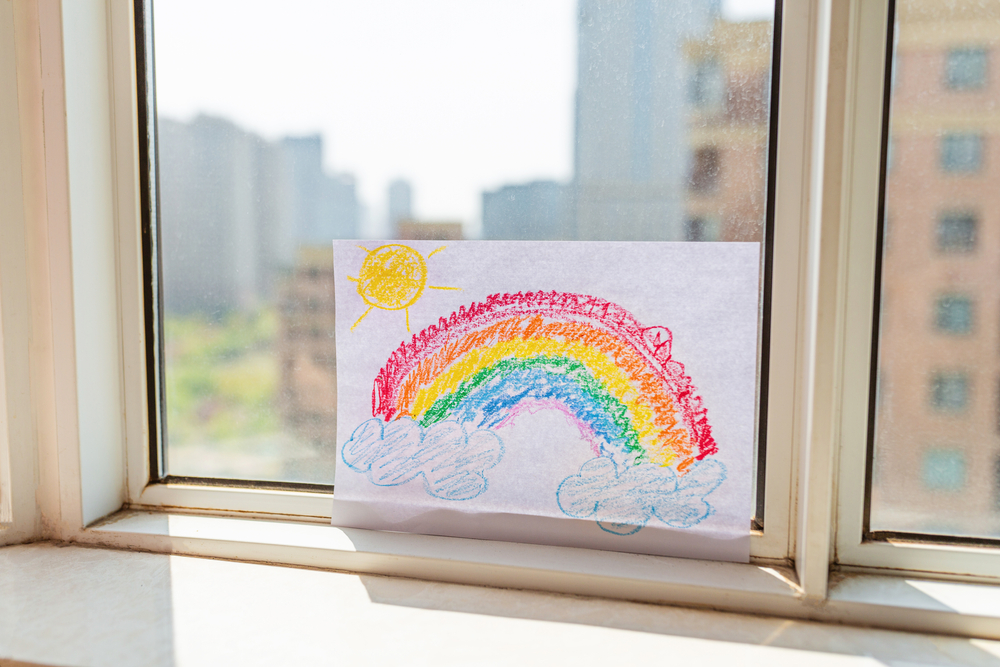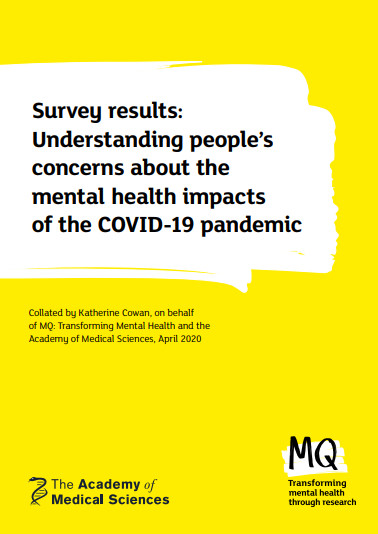Following our recent report on mental health research priorities during the COVID-19 pandemic, we share top tips on how to support your mental wellbeing. Our work was driven by 24 world-leading experts in mental health science, alongside surveys of more than 3000 people. Here are some of their top tips:
1. Stay physically distant, but socially connected
Study author Kate King MBE advised the UK government on The Mental Health Act Review 2018 and has personal experience of severe depression. She says:
“The digital age, for all its problems, has bestowed a real gift: social media, the internet, video and phone meetings mean that social communication and research can continue in a way that would have been impossible even twenty years ago. The more we distance ourselves physically from each other, the more important it is to stay socially connected in whatever ways that work best for you.”
2. Find your new rhythm
Professor Rory O’Connor is a Professor of Health Psychology and helped write the report: “As the world changes, we need to find our own individual sense of purpose. In normal times this often comes from work or familiar family routines, but for many people our focus has shifted, or old structures have been taken away. Each of us can reassess what gives us meaning from day to day, and build new routines during an otherwise unsettling and uncertain time. Despite this situation making some of us feel trapped, it shouldn’t make us feel powerless.”
3. Get some air
We surveyed over 3000 people, and many talked about the importance of getting moving and being outdoors, from sitting on their doorstep to going for a walk with their children. Open a window or step outside, look up, and breathe.
“Walking outside. Trying to count my blessings and enjoy nature. Flowers, sky and fresh air.”
“Listening to birdsong, going out in the yard, and looking out of the windows.”
“I have a garden and it has been very helpful to sit outside every morning and listen to the birds and feel the morning air. Being able to go out for a walk once day is a life-saver for me - in that it is one of my main strategies for managing my anxiety and depression.”
“As I would usually go to the gym 4/5 times a week, I cycle most days and workout at home, this helps.”
4. Consume media with care
Report author Professor Emily Holmes is a clinical psychologist and neuroscientist: “There’s a really careful balance to be found between knowing enough to make you feel well-informed and safe, and becoming anxious due to information overload. This is one of the first pandemics where people are exposed to a 24 hour news cycle, and people need to think carefully about how they access the news. Experiment, be kind to yourself, and find the way to consume media that works best for you.
“If you would like to limit your media intake, it could be helpful to do other activities with that time instead – people in our survey reported all sorts of creative things that were helpful, kept them busy and enhanced their sense of wellbeing. Imagine what sorts of things you could choose to do, and how you could plan to do them.”
5. Care for others...
“Doing something good for someone else is proven to make you feel good. These prosocial, or altruistic, behaviours have been investigated by researchers for decades for their power to benefit the giver as well as the recipient. Think about ways you can do something good for someone else who might need you, whether it’s a friend, a family member, or someone in your wider community.” Professor Matthew Hotopf CBE FMedSci is Vice Dean of Research at the KCL Institute of Psychiatry Psychology and Neuroscience.
6. ...and care for yourself
Professor Matthew Hotopf, Kate King MBE, and many of the people in our surveys talked about the importance of taking care of yourself.
“Pay attention to your body as well as your mind,” Matthew says. “Regular sleep, exercise and taking time out to eat healthily are good for mental as well as physical health. Go easy on alcohol and watch other coping strategies which can become compulsive, like online gambling.”
Kate suggests people start to build a list of things that help manage spikes in anxiety: “Think of things that leave no head space for worry-around-the-edges! They can be practical – like cleaning the shower, or creative, like using old magazines and a glue stick to make a collage or picture, cooking with music on, or even painting with the kids’ paints. It may be a craft you already enjoy, or something new – and sometimes planning something new is an activity in itself. Sing along with your favourite tunes, get lost in a favourite film or box-set, try an online exercise class and see if that helps. There are lots more ideas online – and you don’t have to set rules or targets, unless they help. Just find what works for you.”
7. Keep talking
Report author Professor Ed Bullmore FMedSci is Head of the Department of Psychiatry at the University of Cambridge. He says: “Mental health support is still available throughout the pandemic. We actively want people to reach out and use the support on offer, if they can, to help take care of themselves and others. Keep messaging, keep calling, keep talking to your friends and family. If you or someone you know is struggling with mental health, you shouldn’t hesitate to reach out for help.”
MQ provides a list of key providers and sources of advice on their website, and Samaritans provide confidential non-judgemental emotional support at any time by calling 116 123. In a medical emergency, always call 999.

Read the summary: ‘Tackling the impact of COVID-19 on mental health’
Find out more and read the full report through this page.
